第49章
"I'll get you there, even if it be not alive! I will not abandon your body for the Lyakhs to make merry over you, and cut your body in twain and fling it into the water.Let the eagle tear out your eyes if it must be so; but let it be our eagle of the steppe and not a Polish eagle, not one which has flown hither from Polish soil.I will bring you, though it be a corpse, to the Ukraine!"Thus spoke his faithful companion.He rode without drawing rein, day and night, and brought Taras still insensible into the Zaporozhian Setch itself.There he undertook to cure him, with unswerving care, by the aid of herbs and liniments.He sought out a skilled Jewess, who made Taras drink various potions for a whole month, and at length he improved.Whether it was owing to the medicine or to his iron constitution gaining the upper hand, at all events, in six weeks he was on his feet.His wounds had closed, and only the scars of the sabre-cuts showed how deeply injured the old Cossack had been.But he was markedly sad and morose.Three deep wrinkles engraved themselves upon his brow and never more departed thence.Then he looked around him.All was new in the Setch; all his old companions were dead.Not one was left of those who had stood up for the right, for faith and brotherhood.And those who had gone forth with the Koschevoi in pursuit of the Tatars, they also had long since disappeared.All had perished.One had lost his head in battle; another had died for lack of food, amid the salt marshes of the Crimea; another had fallen in captivity and been unable to survive the disgrace.Their former Koschevoi was no longer living, nor any of his old companions, and the grass was growing over those once alert with power.He felt as one who had given a feast, a great noisy feast.All the dishes had been smashed in pieces; not a drop of wine was left anywhere; the guests and servants had all stolen valuable cups and platters; and he, like the master of the house, stood sadly thinking that it would have been no feast.In vain did they try to cheer Taras and to divert his mind;in vain did the long-bearded, grey-haired guitar-players come by twos and threes to glorify his Cossack deeds.He gazed grimly and indifferently at everything, with inappeasable grief printed on his stolid face; and said softly, as he drooped his head, "My son, my Ostap!"The Zaporozhtzi assembled for a raid by sea.Two hundred boats were launched on the Dnieper, and Asia Minor saw those who manned them, with their shaven heads and long scalp-locks, devote her thriving shores to fire and sword; she saw the turbans of her Mahometan inhabitants strewn, like her innumerable flowers, over the blood-sprinkled fields, and floating along her river banks; she saw many tarry Zaporozhian trousers, and strong hands with black hunting-whips.The Zaporozhtzi ate up and laid waste all the vineyards.In the mosques they left heaps of dung.They used rich Persian shawls for sashes, and girded their dirty gaberdines with them.Long afterwards, short Zaporozhian pipes were found in those regions.They sailed merrily back.A ten-gun Turkish ship pursued them and scattered their skiffs, like birds, with a volley from its guns.Athird part of them sank in the depths of the sea; but the rest again assembled, and gained the mouth of the Dnieper with twelve kegs full of sequins.But all this did not interest Taras.He went off upon the steppe as though to hunt; but the charge remained in his gun, and, laying down the weapon, he would seat himself sadly on the shores of the sea.He sat there long with drooping head, repeating continually, "My Ostap, my Ostap!" Before him spread the gleaming Black Sea; in the distant reeds the sea-gull screamed.His grey moustache turned to silver, and the tears fell one by one upon it.
At last Taras could endure it no longer."Whatever happens, I must go and find out what he is doing.Is he alive, or in the grave? I will know, cost what it may!" Within a week he found himself in the city of Ouman, fully armed, and mounted, with lance, sword, canteen, pot of oatmeal, powder horn, cord to hobble his horse, and other equipments.
He went straight to a dirty, ill-kept little house, the small windows of which were almost invisible, blackened as they were with some unknown dirt.The chimney was wrapped in rags; and the roof, which was full of holes, was covered with sparrows.A heap of all sorts of refuse lay before the very door.From the window peered the head of a Jewess, in a head-dress with discoloured pearls.
"Is your husband at home?" said Bulba, dismounting, and fastening his horse's bridle to an iron hook beside the door.
"He is at home," said the Jewess, and hastened out at once with a measure of corn for the horse, and a stoup of beer for the rider.
"Where is your Jew?"
"He is in the other room at prayer," replied the Jewess, bowing and wishing Bulba good health as he raised the cup to his lips.